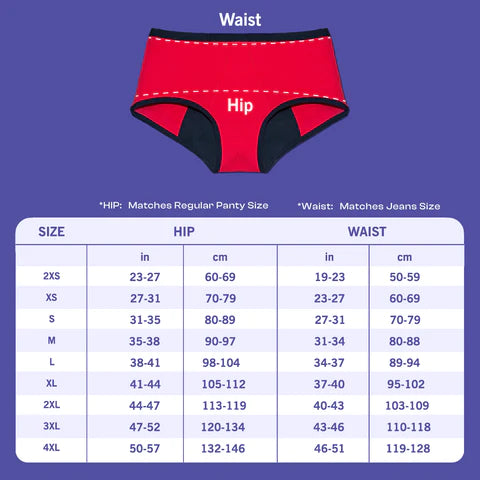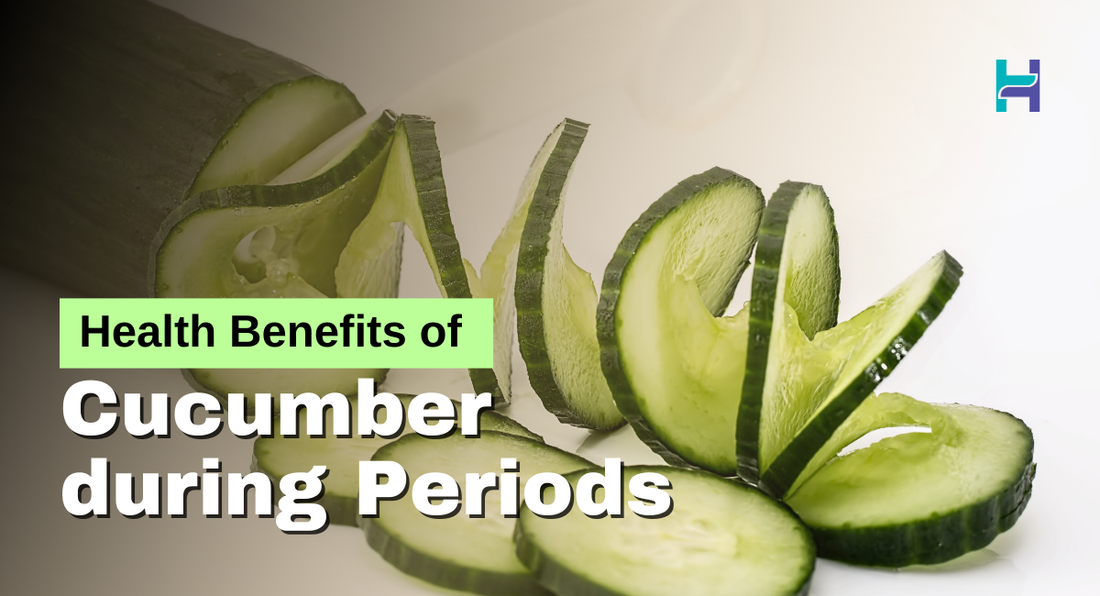Periods can be difficult, and sometimes it is easy to handle them just by taking proper diet and water intake. During these difficult times, cucumber may come to your rescue. Cucumber has multiple health benefits for a woman during her menstrual cycle. In this blog, we outline how cucumber can help to improve your period health, relieve discomfort, and boost well-being in general.
We have outlined the six health benefits of cucumber during menstruation.
6 hidden health benefits of cucumber during periods
1. Better Hydration in periods
It is very important to keep the body well hydrated during menstruation. The amazing percentage of water composition in cucumber, approximately 95%, therefore forms a big part of this hydrating process.
With a high content of water in its composition, cucumber helps not only to keep the body well hydrated but also in digestion and in preventing dehydrations during these times of physiological changes within the body during a menstrual cycle.
2. Anti-inflammatory properties
Cucumbers have antioxidants and flavonoids that work as anti-inflammatory agents. All these properties will help reduce your menstrual cramps and discomfort by lessening inflammation.
3. It is rich in nutrients
Cucumbers are rich in important vitamins and minerals your body needs, including vitamins A, C, and K, and the mineral magnesium. Vitamin A supports immune function and maintains healthy skin. This is helpful when women’s body is under the stress of menstruation.
Vitamin C aids in tissue repair and helps reduce inflammation. This helps reducing inflammation, and ease the discomfort associated with menstrual pain. Cucumber is also a very good source of magnesium, which helps relax muscles and reduce cramps.
4. Cooling property in cucumber
This vegetable is said to have a cooling property that relieves the discomfort in a woman's body during menstrual cycles. This could especially be true if, like some women, you tend to feel excessive heat or have a sweating tendency during your periods.
5. Improves digestive health during menstruation
High fiber levels found in cucumbers aid digestion and will definitely not allow the development of constipation and bloating, which most likely do happen during a period. Much better digestion definitely alleviates the discomfort brought on by such symptoms.
6. Mood regulation properties
Cucumbers contain B vitamins that can help with stress and anxiety management. Such vitamins may balance mood swings or swings in emotions and thus offer emotional stability during a menstrual cycle.
Side effects of eating cucumber
While cucumbers are considered healthy food, women may notice some side effects. For instance, they can cause bloating or gas in some people, more so when consumed in excess. Further, though a rare phenomenon, people may be allergic to it and start itching or even develop swelling.
So, it's all about the moderation of its consumption and being able to gauge one's body to the vegetable. That's what makes the difference between derivation of benefits without side effects and vice versa.

Nutritional value of cucumber
The nutritional value of a typical medium-sized cucumber (approximately 200 grams) is mentioned below:
- Calories: 30-40 kcal
- Water: About 95% of its weight
- Protein: 1-2 grams
- Carbohydrates: 6-8 grams
- Fiber: 1-2 grams
- Sugars: 2-3 grams
- Fat: 0 grams (negligible)
- Vitamin C: 10-15 mg (about 10-15% of the Daily Value)
- Vitamin K: 10-20 mcg (about 10-20% of the Daily Value)
- Vitamin A: 50-70 IU (about 1-2% of the Daily Value)
Can women eat cucumber during their periods?
Yes, women can eat cucumber during their periods, and it's very much recommended. Cucumber contains huge amounts of essential nutrients like vitamins A, C, and K, besides magnesium, all of which go a long way to keeping one healthy.
With its high-water content, cucumbers are very good at keeping the body hydrated, which is very essential during menstruation. Most women often complain of bloating and tiredness during this time. Moreover, its cooling effect soothes a cramping body and mind and thus is ideal to be added to your diet during these days.
Best time to eat cucumber
While the best time to have cucumber largely depends on your diet needs and scheduling, here are some of the best times you could try:
In the morning: Eating cucumber in the morning is refreshing and helps to rehydrate your body. Add it to your breakfast or as a mid-morning snack for jump-starting hydration with extra added nutrients.
Lunch/Dinner: Preparing lunch or dinner with cucumber will help in better hydration and digestion. Its richness in water, fiber, and other micronutrients will help in better digestion of food and satisfy hunger—making this the best addition to your main meals.
Pre-Workout: Having a slice of cucumber before a workout offers you a light, energizing snack that's full of hydration. All the water in it keeps you well-hydrated for the workout.
Mid-Afternoon: Afternoon cucumber snacking controls hunger by providing a refreshing and low-calorie option that is favourable both in terms of water intake and health.
Before Bed: The cucumber eaten before bed will help you hydrate your body without providing too many calories. This light snack is going to help in the process of staying hydrated throughout the night.
In brief
As cucumber is rich in water, it keeps you well-hydrated, reducing bloating and even easing fatigue. Its essential nutrients will also look after comfort and well-being in general. Slice it into your meals or enjoy it as a snack—the cucumber is one of the simplest and most natural ways to lessen menstrual discomfort and keep you fit. Add it to your daily routine and see what an amazing difference it can make in your period experience.
Frequently Asked Questions (FAQs)
Q. Does cucumber balance hormones in women?
No! Cucumbers themselves do not treat hormonal imbalance in a woman. However, they might aid in supporting general health, which indirectly impacts hormonal balance. Being rich in antioxidants and having anti-inflammatory properties makes cucumber good for general well-being, which indirectly affects maintaining hormonal balance.
Q. What are the uses of cucumber to a pregnant woman?
Cucumber may prove to be useful in many ways during pregnancy. It keeps the hydration level high, important for overall health during pregnancy. The amount of fibre helps digestion and prevents constipation, which is one of the frequent problems during pregnancy.
Besides, the vitamins and minerals stored mainly in the form of vitamin K and magnesium, in cucumbers, promote bone health and wellness during pregnancy.
Q. Are cucumbers good for fertility?
Yes! Cucumbers, indirectly, support fertility by adding to health in general. Their high water content keeps the body well-hydrated, and the vitamins and antioxidants contribute towards health in general. While cucumbers alone won't directly improve fertility, they are part of a healthy diet that supports reproductive health.
Q. Can cucumber help in weight loss?
Yes! Cucumbers are very low in calories and high in water content, which is very good for weight loss. The high-water content of cucumbers keeps the body hydrated and also full, thereby cutting down on overall calorie consumption.
Cucumbers can, therefore, be added to your diet if you are thinking about losing some weight. They give a good, satisfying, low-calorie snack.
Q. Can cucumber reduce belly fat?
No, cucumbers can't identify and target the belly fat all by themselves. However, they can be a part of your overall healthy diet, helping in fat loss. Their low-calorie content and water-rich status contribute towards weight management and reduce bloating—both of which would make you appear leaner.
Q. What happens if we eat cucumber daily?
Eating a cucumber daily is comparatively safe and, indeed, beneficial. It helps with hydration, can work as a remedy for digestion, and delivers some much-needed vitamins and minerals into the system.
However, it may sometimes be difficult to digest by some when taken in excess. Thus, moderation is the key, and it's best that cucumbers form a part of the diet.
Q. Is cucumber good for acidity?
Yes! Cucumbers might prove to be of great help in relieving acidity. The high-water content helps in the dilution of stomach acid and, further, offers a cooling effect that soothes discomfort caused by acid reflux. Having cucumbers may be a gentle way to have control over acidity and digestion.
Q. Does cucumber cause gas?
No! Cucumbers are not known to be gas-producing in general. They are easily digestible and comprise a lot of water, which aids digestion.
However, for some, the consumption of huge amounts of raw cucumber may show slight bloating. There is really no reason to consider eating them in moderation to cause gas.
Also read: Lemon water benefits during periods


